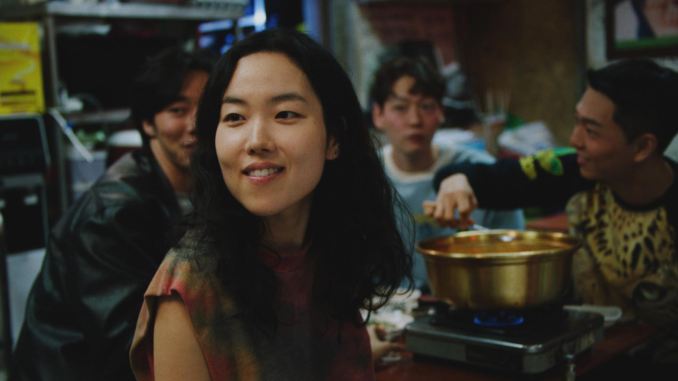Return to Seoul Brings Complex Interiority to the Transnational Adoptee Experience

This review originally ran as part of Paste’s 2022 Busan International Film Festival coverage.
In many ways, transnational adoption drama Return to Seoul was born at the Busan International Film Festival. When French-Cambodian director Davy Chou came to BIFF in 2011 to screen his feature Golden Slumbers, his friend, a Korean-born French adoptee, tagged along for the trip. When she decided to meet up with her birth father, Chou went along for the meeting. More than a decade later, the encounter, which had Chou eating an emotionally intense meal of ginseng and chicken soup amongst his friend’s biological extended family, is brought to raw life in Return to Seoul. The afternoon is heavy, awkward and deeply frustrating—at least for Freddie (Ji-Min Park), the Korean-born French adoptee at the volcanic core of this wandering story. We follow her over the course of eight tumultuous years, as she returns to Seoul again and again, trying to understand what—if anything—the country, its culture and her birth family mean to her.
We first meet Freddie at age 25, when she impulsively travels to Seoul after a flight to Japan is canceled. We’re not given this context until well into the movie, instead thrown into Freddie’s life as she checks into a hostel and almost immediately starts accumulating Korean drinking buddies. Like the character, we have little choice over how we’re brought into this world or how we grow into it. Though Freddie may work furiously to hide it, she’s just as confused as we are. Uncertain if she belongs in this culture of her birth, or if she even wants to. Some of Freddie’s new friends speak fluent French, but most do not, which has the dialogue switching between Korean, French and English as the characters work to understand one another. It’s a depiction and theme that will continue throughout the film: The arduous work of human connection, especially across language barriers and cultures, and through the unique perspective of a transnational adoptee.
Transnational adoptions, as they are usually referred to in the U.S., is a term for a child born in one country and adopted into another. In the second half of the 20th century in particular, following the “end” of the Korean War in 1953, approximately 200,000 Korean children were adopted abroad, mostly sent to Western countries (about two-thirds of international Korean adoptees were adopted in the U.S.). This massive movement of Korean-born children into mostly white families in Western countries has been written about eloquently in many places. It’s also a story that has been told incredibly personally in various film formats. The number of Korean-born international adoptees peaked in the 1980s, which means those kids are now adults, some of whom are storytellers. In 2015, Samantha Futerman and Ryan Miyamoto released Twinsters, a documentary about Korean-born American adoptee Futerman’s experience finding out she has an identical twin sister living in France. And, in 2022, we have Return to Seoul, a transnational adoptee story, as told by Chou and his talented cast.
-

-

-

-

-

-

-

-

-

-

-

-

-

-

-

-

-

-

-

-

-

-

-

-

-

-

-

-

-

-

-

-

-

-

-

-

-

-

-

-








































